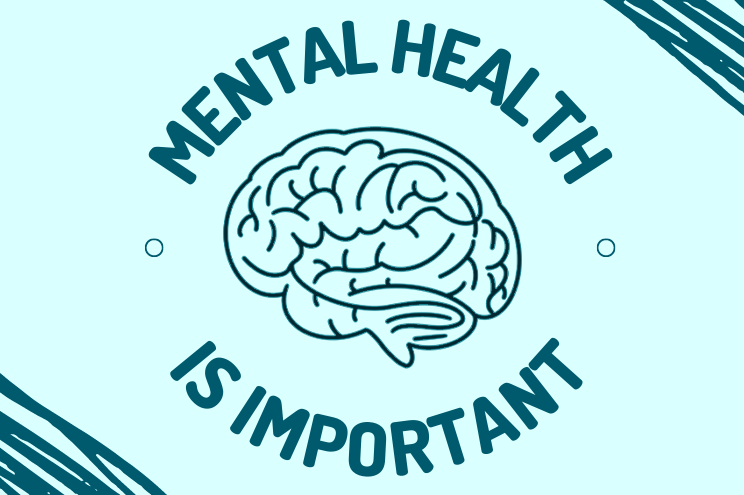The Impact of Schizophrenia on Your Physical and Social Well-being: How to Improve Your Quality of Life

Table of Contents
Understanding the Challenges of Schizophrenia: Exploring the Physical and Social Impacts

Schizophrenia is a complex mental disorder that poses significant challenges to individuals who are affected by it. Not only does it impact one’s mental health, but it also has profound physical and social implications. Understanding these challenges is crucial in order to provide appropriate support and enhance the overall well-being of individuals with schizophrenia.
From a physical perspective, schizophrenia can lead to various health issues. People with this condition often experience a sedentary lifestyle, which can contribute to weight gain, cardiovascular problems, and an increased risk of chronic diseases. Furthermore, the side effects of antipsychotic medications commonly prescribed to manage symptoms can cause metabolic changes, such as elevated cholesterol levels and insulin resistance. It is essential for healthcare providers and individuals with schizophrenia alike to prioritize physical wellness and adopt strategies for maintaining a healthy lifestyle. By incorporating regular exercise, a balanced diet, and sufficient sleep patterns, individuals can improve their physical health and reduce the risk of associated complications.
On a social level, schizophrenia can significantly impact a person’s relationships and overall social functioning. Due to symptoms like hallucinations, delusions, and disorganized thinking, individuals with this condition may struggle to communicate effectively, leading to misunderstandings and difficulties in forming connections with others. Moreover, the stigma surrounding mental illness often results in social isolation and discrimination, exacerbating the challenges faced by individuals with schizophrenia. It is imperative to address these social barriers, promote awareness, and educate communities to foster greater inclusivity and understanding. By nurturing social connections and building a strong support system, individuals with schizophrenia can improve their overall quality of life and emotional well-being.
Understanding the physical and social impacts of schizophrenia is essential for healthcare providers, families, and society as a whole. By recognizing these challenges, we can work together to develop effective strategies and interventions that support the holistic well-being of individuals with schizophrenia. Providing support, reducing stigma, and fostering a supportive and inclusive environment are crucial steps towards improving the lives of those affected by this complex mental disorder.
Enhancing Physical Wellness: Strategies for Maintaining a Healthy Lifestyle

Maintaining a healthy lifestyle is vital for enhancing physical wellness and overall well-being. By adopting effective strategies and making conscious choices, individuals can improve their physical health and reduce the risk of various diseases. Regular physical activity is one of the key components of a healthy lifestyle. Engaging in exercises such as walking, jogging, swimming, or cycling can not only improve cardiovascular fitness but also boost mood, reduce stress, and enhance mental well-being.
In addition to regular exercise, a balanced and nutritious diet is crucial for maintaining optimal physical wellness. Consuming a diet that is rich in fruits, vegetables, whole grains, lean proteins, and healthy fats provides the necessary nutrients for the body to function properly. Including a variety of foods from different food groups ensures that individuals receive essential vitamins, minerals, and antioxidants. It is also important to limit the intake of processed foods, sugary beverages, and unhealthy fats, as they can contribute to weight gain and increase the risk of chronic diseases such as heart disease, diabetes, and certain types of cancer. By making conscious food choices and practicing portion control, individuals can maintain a healthy weight and improve their overall physical health.
Nurturing Social Connections: Building and Sustaining Relationships

Building and maintaining healthy relationships is essential for overall well-being, especially for individuals living with schizophrenia. Nurturing social connections can provide a sense of belonging, support, and understanding, which can greatly improve mental health outcomes. However, establishing and maintaining relationships can pose unique challenges for those with schizophrenia.
One of the key challenges is stigma surrounding the illness, which can lead to discrimination, rejection, and isolation. Educating yourself and others about schizophrenia can help dispel misunderstandings and counter stigma. By fostering open and honest communication, you can bridge the gap between yourself and others, promoting understanding and acceptance. It may also be helpful to seek support from others who have experienced similar challenges, such as joining support groups or online communities. These avenues provide a safe space to share experiences, gain insights, and form connections with individuals who can relate to your journey. Additionally, engaging in activities that align with your interests and values can help you meet like-minded individuals and establish meaningful connections. Remember, building and sustaining relationships takes time and effort, but the reward of genuine connections and support is invaluable.
Coping with Stigma: Overcoming Social Barriers and Negative Perceptions
Stigma surrounding mental health conditions, such as schizophrenia, can create significant social barriers and negative perceptions. It is crucial for individuals living with schizophrenia to cope with this stigma and find ways to overcome these challenges. By actively addressing and dismantling the misconceptions surrounding this condition, individuals can not only enhance their own well-being but also contribute to creating a more inclusive and understanding society.
One way to cope with stigma is through education and advocacy. By educating oneself and others about schizophrenia and its realities, individuals can challenge the stereotypes and misinformation that surround it. Sharing personal experiences, engaging in public speaking, or participating in mental health campaigns can help raise awareness, dispel myths, and foster empathy. Additionally, promoting positive portrayals of individuals with schizophrenia in the media and popular culture can also play a crucial role in combating stigma and fostering understanding.
In conclusion, coping with stigma associated with schizophrenia requires proactive efforts from individuals, communities, and society as a whole. By educating ourselves and others about this condition, challenging stereotypes, and promoting understanding, we can create a more inclusive and supportive environment for individuals living with schizophrenia. Together, we can break down the social barriers and negative perceptions that hinder progress and work towards a society where mental health is destigmatized and everyone receives the compassion and support they deserve.
Here’s a table outlining a plan to cope with stigma:
| Step | Description |
|---|---|
| 1. Education and Awareness | Educate yourself about the nature of stigma, its impact, and common misconceptions. Raise awareness about stigma through conversations and sharing reliable information. |
| 2. Building Support System | Surround yourself with understanding and supportive individuals who validate your experiences and offer empathy. Seek out support groups or online communities where you can connect with others facing similar challenges. |
| 3. Self-Acceptance | Practice self-compassion and acceptance. Recognize that experiencing stigma does not diminish your worth or identity. Engage in activities that promote self-care and nurture your well-being. |
| 4. Assertive Communication | Develop assertive communication skills to address instances of stigma. Learn to express your thoughts, feelings, and needs confidently and respectfully. Stand up for yourself when encountering discrimination or prejudice. |
| 5. Challenging Stereotypes | Challenge stereotypes and misconceptions by sharing your story and lived experiences. Advocate for accurate representation and positive portrayals of individuals facing stigma in media and society. |
| 6. Seeking Professional Help | Consider seeking support from mental health professionals or counselors trained in stigma-related issues. Therapy can provide a safe space to explore and address the emotional impact of stigma and develop coping strategies. |
| 7. Advocacy and Empowerment | Get involved in advocacy efforts aimed at reducing stigma and promoting inclusion. Join organizations or campaigns dedicated to mental health awareness and social justice. Use your voice to advocate for systemic change and equal rights. |
Recognizing the Warning Signs: Early Detection and Intervention
Recognizing the early warning signs of schizophrenia is crucial for timely intervention and improved outcomes. While symptoms may vary from person to person, there are common signs that can indicate the presence of this complex mental illness. Changes in behavior, thoughts, and emotions may be the initial indicators to look out for. These can include social withdrawal, a decline in academic or work performance, difficulty concentrating or organizing thoughts, unusual speech patterns, and changes in sleep or appetite.
It is important to note that these symptoms alone do not confirm a diagnosis of schizophrenia, but they serve as red flags that warrant further assessment by a healthcare professional. Early intervention plays a significant role in managing the condition and preventing potential complications. Research has shown that prompt treatment can lead to better long-term outcomes and quality of life for individuals living with schizophrenia. If you or a loved one experience any of these warning signs, it is essential to reach out to a mental health professional who can conduct a comprehensive evaluation and provide appropriate support and guidance.
The Role of Medication: Managing Symptoms and Promoting Well-being
Medication plays a crucial role in managing the symptoms of schizophrenia and promoting overall well-being. It is an integral part of the treatment plan, working in conjunction with other therapeutic interventions. By addressing the chemical imbalances in the brain, medication can help alleviate the distressing symptoms associated with this mental illness.
Antipsychotic medications, such as risperidone and olanzapine, are commonly prescribed to individuals with schizophrenia. These medications work by blocking the dopamine receptors in the brain, which helps reduce hallucinations, delusions, and disorganized thinking. Research has shown that antipsychotic medication can significantly improve symptoms and reduce the risk of relapse.
However, it is important to note that each person’s response to medication is unique, and finding the right medication and dosage may require some trial and error. It is vital to work closely with a healthcare professional, such as a psychiatrist, to monitor the effects of medication and make any necessary adjustments. Additionally, it is essential to maintain regular communication with your healthcare provider to discuss any side effects or concerns that may arise.
In combination with medication, a comprehensive treatment approach that includes therapy, support groups, and lifestyle changes can further enhance well-being and promote recovery. It is essential to remember that medication is only one component of the overall treatment plan and that a holistic approach is necessary for long-term success in managing schizophrenia.
Embracing Therapy: Utilizing Psychological Support for Improved Quality of Life
Therapy can be a valuable tool for individuals living with schizophrenia, providing them with the psychological support needed to improve their quality of life. Through therapy, individuals can gain a better understanding of their condition, develop coping strategies, and address any underlying emotional or psychological issues.
One of the most common forms of therapy used in treating schizophrenia is cognitive-behavioral therapy (CBT). CBT helps individuals identify and challenge negative thoughts and beliefs, as well as develop healthier coping mechanisms. It can also assist in managing symptoms such as hallucinations or delusions by exploring alternate interpretations and developing coping strategies.
Another effective therapy for individuals with schizophrenia is family therapy. Schizophrenia can have a significant impact on familial relationships, and involving loved ones in the therapy process can help alleviate some of the strain. Family therapy can facilitate communication, improve understanding, and strengthen support networks, ultimately improving the overall mental well-being of both the individual with schizophrenia and their family members.
Building a Strong Support System: Engaging with Family, Friends, and Support Groups
Building a strong support system is crucial for individuals with schizophrenia, as it provides them with the necessary emotional, practical, and social support to navigate the challenges they may face. Engaging with family, friends, and support groups can offer a valuable network of understanding and acceptance, enabling individuals with schizophrenia to lead fulfilling and meaningful lives.
Family members play a vital role in the support system of individuals with schizophrenia. Their understanding, empathy, and involvement can significantly contribute to a person’s recovery and overall well-being. Family members can educate themselves about schizophrenia, its symptoms, and treatment options, as well as learn effective communication strategies that foster trust and understanding. By actively participating in their loved one’s treatment plans and providing emotional support, family members can help alleviate the burden and stigma associated with schizophrenia.
In addition to family support, friendships can also play an important role in the lives of individuals with schizophrenia. Friends who are understanding, nonjudgmental, and supportive can provide a sense of belonging and social connection. Maintaining friendships may require open communication about the illness, its symptoms, and the challenges it may present. By nurturing these relationships, individuals with schizophrenia can combat isolation and enhance their social well-being.
Support groups specifically tailored for individuals with schizophrenia offer a unique sense of community and understanding. These groups provide a safe space for individuals to share experiences, exchange coping strategies, and offer mutual support. Support groups can help individuals with schizophrenia feel less alone and provide them with a platform to address concerns, express emotions, and seek guidance from others who have faced similar challenges. Participating in such groups can foster a sense of empowerment, self-advocacy, and resilience.
Overall, building a strong support system with the involvement of family, friends, and support groups is instrumental for individuals with schizophrenia. These relationships and networks can offer invaluable support, understanding, encouragement, and empowerment, helping individuals with schizophrenia lead fulfilling lives while managing their condition.
Holistic Approaches: Exploring Complementary Therapies for Well-being
Holistic Approaches: Exploring Complementary Therapies for Well-being
When it comes to managing the symptoms of schizophrenia and promoting overall well-being, individuals often turn to a holistic approach that encompasses not only traditional medical interventions, but also complementary therapies. Complementary therapies, also known as alternative or integrative therapies, focus on addressing the whole person, including their physical, mental, emotional, and spiritual well-being. These therapies can be used alongside conventional treatments to enhance overall wellness and improve quality of life.
One complementary therapy that has shown promise in supporting individuals with schizophrenia is mindfulness meditation. Mindfulness meditation involves focusing one’s attention on the present moment, accepting one’s thoughts and feelings without judgment. Research has indicated that mindfulness meditation can reduce symptoms of anxiety, depression, and stress, which are often experienced by individuals with schizophrenia. It has also been found to improve cognitive functioning and increase overall well-being. Incorporating mindfulness meditation into one’s daily routine can help individuals cultivate a sense of calm, increase self-awareness, and better manage their symptoms.
Another complementary therapy that individuals with schizophrenia may find beneficial is yoga. Yoga combines physical postures, breathing exercises, and meditation to promote relaxation, flexibility, and strength. Studies have shown that practicing yoga can reduce symptoms of anxiety, depression, and stress, as well as improve cognitive function and overall quality of life for individuals with schizophrenia. Engaging in regular yoga practice can not only enhance physical well-being by improving strength and flexibility, but also provide a sense of empowerment and self-control over one’s body and mind.
It is important to note that while complementary therapies can be used to enhance well-being, they should not replace conventional medical interventions for schizophrenia. It is essential for individuals to work closely with their healthcare provider to develop an individualized treatment plan that incorporates both traditional and complementary therapies. By embracing a holistic approach that considers the physical, emotional, and spiritual aspects of well-being, individuals with schizophrenia can boost their overall wellness and lead fulfilling lives.
Balancing Daily Life: Strategies for Managing Work, Study, and Daily Responsibilities
Managing work, study, and daily responsibilities can be a daunting task, especially for individuals living with schizophrenia. The symptoms of this mental health condition can disrupt daily routines and make it challenging to maintain a balanced lifestyle. However, with the right strategies in place, it is possible to navigate these challenges and lead a fulfilling life.
One effective strategy for balancing daily life is to establish a structured routine. Creating a schedule can provide a sense of stability and help individuals with schizophrenia manage their time effectively. Start by setting specific times for work or study, taking breaks, and engaging in self-care activities. By adhering to a routine, individuals can better prioritize their responsibilities and reduce the risk of becoming overwhelmed.
Another important strategy is to practice effective time management. This involves setting realistic goals, breaking tasks into smaller, manageable steps, and utilizing helpful tools such as calendars or planners. By prioritizing tasks and allocating specific time slots for each activity, individuals can optimize their productivity and ensure that they are able to fulfill their commitments.
In addition, it is crucial to communicate openly with employers, teachers, or supervisors about one’s condition and any accommodations that may be needed. Informing others about the challenges faced can lead to better understanding and support. Remember, it is essential to advocate for oneself and take necessary steps to create a supportive environment in the workplace or educational setting.
By implementing these strategies and seeking support when needed, individuals with schizophrenia can successfully balance their work, study, and daily responsibilities, while also prioritizing their mental health and well-being. It is important to remember that everyone’s journey is unique, and finding the right balance may take time.
Promoting Self-care: Prioritizing Your Physical and Mental Health
Self-care is a crucial aspect of maintaining optimal physical and mental health, particularly for individuals navigating the challenges of schizophrenia. Prioritizing self-care not only helps to manage symptoms but also fosters overall well-being and quality of life. In this section, we will explore strategies and recommendations for promoting self-care and highlight the importance of incorporating it into daily routines.
One fundamental aspect of self-care is paying attention to physical health. Engaging in regular exercise, such as brisk walking, swimming, or yoga, can have a positive impact on both physical and mental well-being. Physical activity not only improves cardiovascular health but also stimulates the production of endorphins, which can elevate mood and reduce stress. Alongside exercise, adopting healthy eating habits that include a well-balanced diet rich in fruits, vegetables, and whole grains is essential for providing the body with necessary nutrients. It is important to consult with a healthcare professional or registered dietitian to personalize dietary recommendations and ensure optimal nutrition. Additionally, prioritizing regular sleep patterns is crucial for recharging the body and mind, as inadequate sleep can exacerbate symptoms of schizophrenia.
Embracing a Healthy Lifestyle: Diet, Exercise, and Sleep Patterns
A healthy lifestyle encompasses various aspects, including diet, exercise, and sleep patterns. These three components play a crucial role in maintaining overall well-being and promoting optimal physical and mental health. Let’s delve into each of them and explore the ways in which they contribute to embracing a healthy lifestyle.
Diet is a fundamental aspect of a healthy lifestyle. It provides the necessary nutrients and energy our bodies need to function optimally. A balanced diet should include a variety of fruits, vegetables, whole grains, lean protein sources, and healthy fats. It is essential to limit the consumption of processed foods, sugary snacks, and unhealthy fats to maintain a healthy weight and reduce the risk of chronic diseases. Additionally, staying hydrated by drinking an adequate amount of water throughout the day is crucial for optimal bodily functions.
Regular exercise is another vital component of a healthy lifestyle. Engaging in physical activity not only helps maintain a healthy weight but also improves cardiovascular health, strengthens muscles and bones, and reduces the risk of various diseases. The World Health Organization recommends at least 150 minutes of moderate-intensity aerobic activity or 75 minutes of vigorous-intensity aerobic activity per week, combined with muscle-strengthening exercises at least twice a week. Finding activities that you enjoy, such as walking, swimming, dancing, or cycling, can make exercise a more enjoyable part of your routine.
Sleep is often undervalued but plays a significant role in our physical and mental well-being. It is during sleep that our bodies repair and rejuvenate themselves. Poor sleep quality or inadequate sleep duration can have detrimental effects on our overall health. Adults should aim for seven to nine hours of quality sleep each night. Establishing a consistent sleep schedule, creating a sleep-friendly environment, and practicing relaxation techniques before bed can all contribute to improved sleep patterns.
Incorporating a healthy diet, regular exercise, and adequate sleep into your lifestyle may require some adjustments and commitment. However, the benefits are well worth the effort. Embracing these three pillars of a healthy lifestyle can enhance your physical well-being, boost your mood, and improve your overall quality of life.
Communication Skills: Enhancing Social Interactions and Reducing Isolation
Communication skills play a crucial role in enhancing social interactions and reducing isolation for individuals living with schizophrenia. Effective communication not only fosters understanding and empathy but also helps establish a sense of connection and support from others. One important aspect of communication skills is active listening, which involves paying attention to verbal and non-verbal cues while also being present in the conversation.
Active listening is a valuable tool for building trust and rapport with others. It involves genuinely focusing on what the other person is saying, without interrupting or jumping to conclusions. By demonstrating active listening, individuals with schizophrenia can ensure that they understand what is being communicated, which can help avoid misunderstandings and improve overall communication. Additionally, asking open-ended questions and using supportive verbal and non-verbal cues, such as nodding and maintaining eye contact, can show the other person that their thoughts and feelings are being valued and respected.
Moreover, effective communication involves expressing oneself clearly and assertively. It is important for individuals with schizophrenia to practice expressing their thoughts, emotions, and needs in a direct and respectful way. This can help reduce feelings of isolation and improve social interactions, as it allows others to understand and respond appropriately. Developing assertiveness skills can be achieved through therapy or counseling sessions, where individuals can learn techniques and strategies to express themselves confidently and effectively.
Employment Opportunities: Navigating the Workplace with Schizophrenia
Navigating the workplace can pose unique challenges for individuals with schizophrenia. However, with the right support and strategies in place, it is possible to thrive in a professional environment.
One key aspect of navigating employment opportunities with schizophrenia is open communication. By discussing your condition with your employer or supervisor, you can work together to establish reasonable accommodations that ensure your success and well-being in the workplace. This could include adjustments to your work schedule, modifications to your physical workspace, or providing additional support or resources as needed. Having a transparent conversation about your needs can help foster understanding and create a supportive work environment.
In addition to communication, it is also important to prioritize self-care and holistic well-being. Taking steps to manage stress, such as engaging in regular exercise, practicing mindfulness techniques, and getting enough sleep, can positively impact your mental health and overall performance at work. It is also helpful to seek support from mental health professionals or support groups who can provide guidance, coping strategies, and a safe space to discuss your experiences. By prioritizing your own well-being, you can enhance your resilience and capacity to navigate the challenges of the workplace with schizophrenia.
Advocacy and Empowerment: Promoting Awareness and Fighting for Your Rights
Advocacy and empowerment are crucial components in promoting awareness and fighting for the rights of individuals living with schizophrenia. By raising our voice and actively engaging in advocacy efforts, we can strive towards creating a more inclusive society and fostering a better understanding of this complex mental illness.
One of the key aspects of advocacy is to challenge stereotypes and dispel misconceptions surrounding schizophrenia. By educating ourselves and others about the reality of this condition, we can break down the barriers that often contribute to stigma and discrimination. Utilizing scientific evidence, data, and personal stories, we can provide factual information to counter prevailing myths and promote a more compassionate and empathetic attitude towards individuals living with schizophrenia.
Furthermore, advocacy plays a crucial role in influencing policy changes and promoting the rights of individuals with schizophrenia. By advocating for increased funding for mental health services, improved access to care, and fair treatment in various aspects of life, we can work towards a society that supports the wellbeing and full participation of those affected by this illness.
To effectively advocate for the rights of individuals with schizophrenia, it is important to join forces with organizations and support groups that are actively working towards the same goals. By collaborating with like-minded individuals, we can amplify our voices, pool our resources, and create a more powerful impact. Through coordinated efforts, we can work towards societal changes and ensure that individuals with schizophrenia have equal opportunities, access to quality care, and live with dignity and respect.
Remember, advocacy is a continuous journey that requires patience, perseverance, and resilience. By actively engaging in efforts to promote awareness and fight for the rights of individuals with schizophrenia, we can contribute to a more inclusive society that supports the wellbeing and empowerment of all its members.
What is advocacy?
Advocacy refers to actively supporting and promoting a cause or issue, often by raising awareness, influencing public opinion, and fighting for the rights of individuals or groups.
How can I advocate for individuals with schizophrenia?
You can advocate for individuals with schizophrenia by promoting awareness, challenging stigmas, and fighting for their rights. This can be done through education, speaking out against discrimination, supporting policy changes, and actively participating in advocacy organizations.
Are there any specific laws or policies that protect the rights of individuals with schizophrenia?
Yes, there are laws and policies in place that protect the rights of individuals with mental illnesses, including schizophrenia. These may include the Americans with Disabilities Act (ADA), the Mental Health Parity and Addiction Equity Act (MHPAEA), and state-specific laws that ensure access to treatment and accommodations.
How can I help reduce the stigma associated with schizophrenia?
You can help reduce the stigma associated with schizophrenia by promoting accurate information and challenging negative stereotypes. This can be done through education, sharing personal stories, supporting individuals with schizophrenia, and speaking out against discriminatory practices.
Can advocacy efforts help improve access to mental health services for individuals with schizophrenia?
Yes, advocacy efforts can play a crucial role in improving access to mental health services for individuals with schizophrenia. By advocating for increased funding, policy changes, and the expansion of mental health resources, more individuals with schizophrenia can receive the support and treatment they need.
Are there any support groups or organizations specifically dedicated to schizophrenia advocacy?
Yes, there are various support groups and organizations dedicated to schizophrenia advocacy. Examples include the National Alliance on Mental Illness (NAMI), Schizophrenia and Related Disorders Alliance of America (SARDAA), and the Treatment Advocacy Center (TAC). These organizations provide resources, support, and opportunities for advocacy.
How can I get involved in schizophrenia advocacy?
You can get involved in schizophrenia advocacy by joining or supporting advocacy organizations, participating in awareness campaigns and events, contacting local representatives to voice your concerns, volunteering your time and skills, and sharing information about schizophrenia and related issues with your community.
Can advocacy efforts lead to policy changes that benefit individuals with schizophrenia?
Yes, advocacy efforts can lead to policy changes that benefit individuals with schizophrenia. By raising awareness, mobilizing support, and influencing decision-makers, advocates can help shape policies that improve access to treatment, support services, and social inclusion for individuals with schizophrenia.
How can I stay updated on the latest advocacy efforts and news related to schizophrenia?
You can stay updated on the latest advocacy efforts and news related to schizophrenia by following reputable advocacy organizations, subscribing to their newsletters or email updates, joining online communities or forums dedicated to mental health advocacy, and regularly checking reliable news sources covering mental health topics.
Can individuals without schizophrenia still contribute to advocacy efforts?
Absolutely! Individuals without schizophrenia can contribute to advocacy efforts by supporting and amplifying the voices of individuals with schizophrenia, educating themselves and others about the condition, challenging stigma, and actively promoting policies and practices that prioritize mental health and well-being for all.






